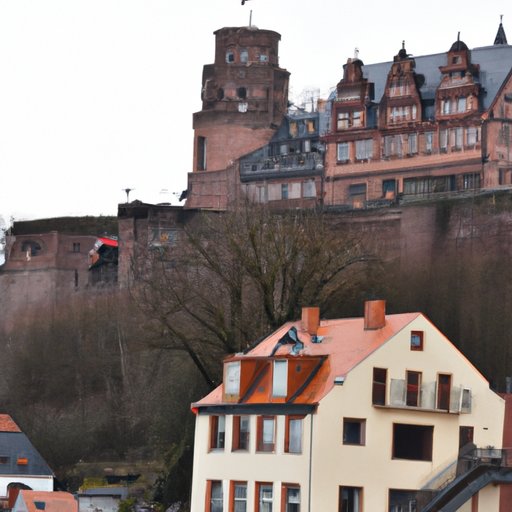Introduction
Germany is a country with a rich and diverse history that has had a major impact on the world. From its food to its architecture and from its literature to its music, German culture has shaped the way we live today. In this article, we will explore some of the most important aspects of German culture. We’ll look at traditional dishes, historical sites, castles and palaces, language and literature, music, art, and theater.
Exploring German Cuisine
Germany is known for its hearty, comforting dishes. Traditional German dishes include sauerbraten (a marinated roast), rouladen (beef rolls filled with bacon and onion), bratwurst (sausages), and schnitzel (breaded veal cutlets). Regional specialties vary by area; for example, in Bavaria you might find schweinshaxe (roast pork knuckle) or käsespätzle (cheese noodles), while in Berlin you might find currywurst (sliced sausage with curry ketchup) or doner kebab. Popular foods like pretzels, beer, and chocolate are also part of German culture.
Uncovering Germany’s History and Traditions
Germany is home to many cultural events throughout the year, such as Oktoberfest, the Christmas markets, and Karneval. Historical sites like the Berlin Wall, the Brandenburg Gate, and the Reichstag are symbols of German history. Folklore is an important part of German culture and includes tales like Grimm’s Fairy Tales and the legend of the Pied Piper of Hamelin.
Touring Germany’s Castles and Palaces
Germany is home to many stunning castles and palaces, each with its own unique history. Neuschwanstein Castle is one of the most famous castles in the world, located in Bavaria. Heidelberg Castle is a romantic ruin that overlooks the city of Heidelberg. Linderhof Palace is an extravagant palace built by King Ludwig II of Bavaria.
Examining German Language and Literature
The German language is a West Germanic language related to English and Dutch. It is the official language of Germany, Austria, Switzerland, and Liechtenstein, and it is one of the 24 official languages of the European Union. German literature has a long and distinguished history, with authors such as Goethe, Schiller, Brecht, and Kafka. Literary movements such as Expressionism and New Objectivity have also played an important role in German literature.
Celebrating German Music, Art, and Theater
Germany has a long and proud musical tradition, with composers such as Bach, Beethoven, and Brahms. Baroque art flourished in Germany during the 17th and 18th centuries, with artists such as Rubens, Rembrandt, and Caravaggio. German theater is also highly regarded, with playwrights such as Bertolt Brecht and Friedrich Schiller.
Conclusion
Germany is a country with a vibrant culture that has had an immense influence on the world. From its cuisine to its castles and from its literature to its art, Germany has much to offer. Whether you’re interested in exploring its history, touring its castles, or learning more about its language and literature, there is something for everyone to enjoy in Germany.
(Note: Is this article not meeting your expectations? Do you have knowledge or insights to share? Unlock new opportunities and expand your reach by joining our authors team. Click Registration to join us and share your expertise with our readers.)
